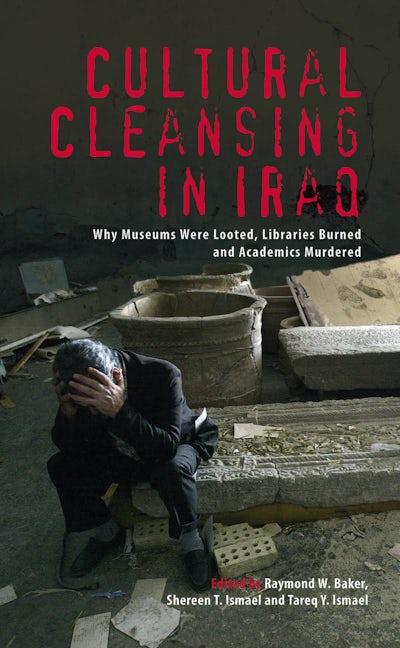
Cultural Cleansing in Iraq
Why Museums Were Looted, Libraries Burned and Academics Murdered
Post-invasion chaos created conditions under which the cultural foundations of the state could be undermined. The authors painstakingly document the consequences of the occupiers' wilful inaction and worse, which led to the ravaging of one of the world's oldest recorded cultures. Targeted assassination of over 400 academics, kidnapping and the forced flight of thousands of doctors, lawyers, artists and other intellectuals add up to cultural cleansing.
This book lays to rest claims that the invasion aimed to free an educated population to develop its own culture of democracy.
Raymond William Baker is Professor of International Politics, Trinity College, USA, and Adjunct Professor of Political Science at the American University in Cairo. His books include Cultural Cleansing in Iraq (Pluto, 2009) and Islam Without Fear (Harvard University Press, 2006).
Shereen T. Ismael is an Assistant Professor of Social Work and MSW Field Coordinator in the School of Social Work, Carleton University. In addition to her book Child Poverty and the Canadian Welfare State (UAP, 2006), she is the co-editor of Cultural Cleansing in Iraq (Pluto, 2009).
Tareq Y. Ismael is Professor of Political Science at the University of Calgary, Canada and President of the International Centre for Contemporary Middle East Studies at Eastern Mediterranean University. His most recent works include Middle Cultural Cleansing in Iraq (Pluto, 2009), The Iraqi Predicament (Pluto, 2004) and Iraq (Pluto, 2003).
Preface
Part I: Formulating and Executing the Policy of Cultural Cleansing
1. Introduction by Raymond W. Baker, Shereen T. Ismael and Tareq Y. Ismael
2. Cultural Cleansing in Comparative Perspective by Glenn E. Perry
Part II: Policy in Motion: Destroying the Past, Killing the Future
Part A: The Assault on Iraq's Incomparable History
3.Archaeology and the Strategies of War by Zainab Bahrani
4. The Status of Iraq's Archaeological Heritage: Report on the Destruction of Archaeological Sites, Museums and Historical Monuments in Occupied Iraq by Abbas Husainy
5. Negligient Mnemocide and the Shattering of Iraqi Collective Memory by Nabil Al Tikriti (University of Mary Washington, USA)
Part B: The Present and the Future
6. Killing the Intellectual Class by Dahr Jamil and Max Fuller
Dirk Adriaensens
7. The Purging of Minds by Philip Marfleet
8. Minorities in Iraq: The Other Victims by Mokhtar Lamani
Part III: Appendices
Appendix I. Reflections on Death Anxiety and University Professors in Iraq by Faris K. O. Nadhmi
Appendix II. List of Murdered Academics
About the Contributors
Index
eBook ISBN: 9781783718283
Read on any device

